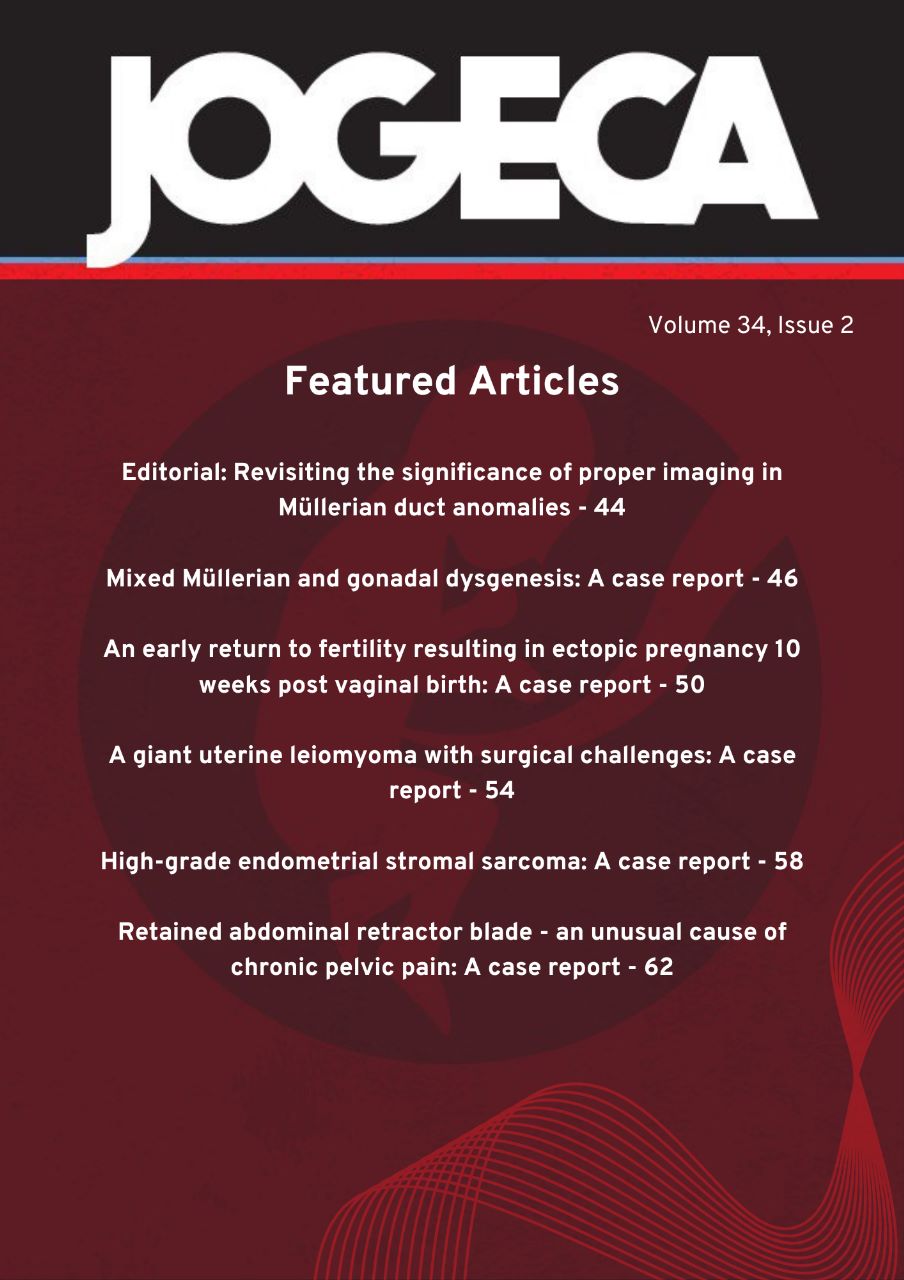Association between interpersonal relational factors in couples with tubal infertility and delayed decision-making on definitive treatment: a case control study
DOI:
https://doi.org/10.59692/jogeca.v28i2.337Keywords:
Relational factors, Delayed decision-making, Definitive treatment, Tubal infertilityAbstract
Background: Infertility affects about 10% of couples and is often characterized by delay in initializing seeking of treatment, which culminates in delay in appropriate decision-making on definitive management. This creates a need for understanding the determinants of delay in order to strategize on corrective intervention.
Objective: To determine the association between interpersonal relational factors among couples with tubal infertility and delayed decision-making on definitive treatment.
Method: This was an unmatched case-control study at Kenyatta National Hospital Infertility Clinic amongst women with tubal infertility in who decisions on definitive treatment had been made. Cases were patients with delayed decision-making (≥4 years), whereas controls were patients without delayed decision-making (<4 years).
Results: Age >35 years (OR 15.93, OR 95% CI 5.36-47.38, p <0.001), low education level (OR 8.56, OR 95% CI 2.98- 24.58, p <0.001) and rural residence (OR 8.74, OR 95% CI 2.89-26.48, p<0.001) were associated with delay. Formal marriage was negatively associated with delay (OR 0.17, OR 95% CI 0.05 – 0.50, p <0.001). Prolonged duration to effective communication on difficulty in conception (≥ 25 months), (OR 20.3, OR 95% CI 2.52 – 162.83, p <0.001) and being blamed by the male spouse (OR 12.73, OR 95% CI 4.54 – 35.62, p <0.001) were significantly associated with delay. Support by the male spouse, including performance of semen analysis (OR 0.17, 95% CI 0.06 – 0.49, p <0.001) was negatively associated with delayed decision-making on definitive management. In relation to marital conflict, the strongest associations with delay were noted with threats of divorce (OR 47.31, OR 95% CI 9.93 – 225.45, p <0.001), sexual constraints (OR 42.46, OR 95% CI 8.96 – 201.29, p <0.001) and physical violence (OR 27.46, OR 95%CI 3.44 – 218.78, p < 0.001).
Conclusion: Adverse inter-relational factors among couples with infertility are significantly associated with delay in decision-making on appropriate treatment of tubal infertility. It is recommended that adequate education on preparedness for infertility as a possible outcome be encouraged, in order to minimize delay in seeking treatment.
Downloads
Published
How to Cite
Issue
Section
Categories
License
Copyright (c) 2016 Authors

This work is licensed under a Creative Commons Attribution 4.0 International License.




